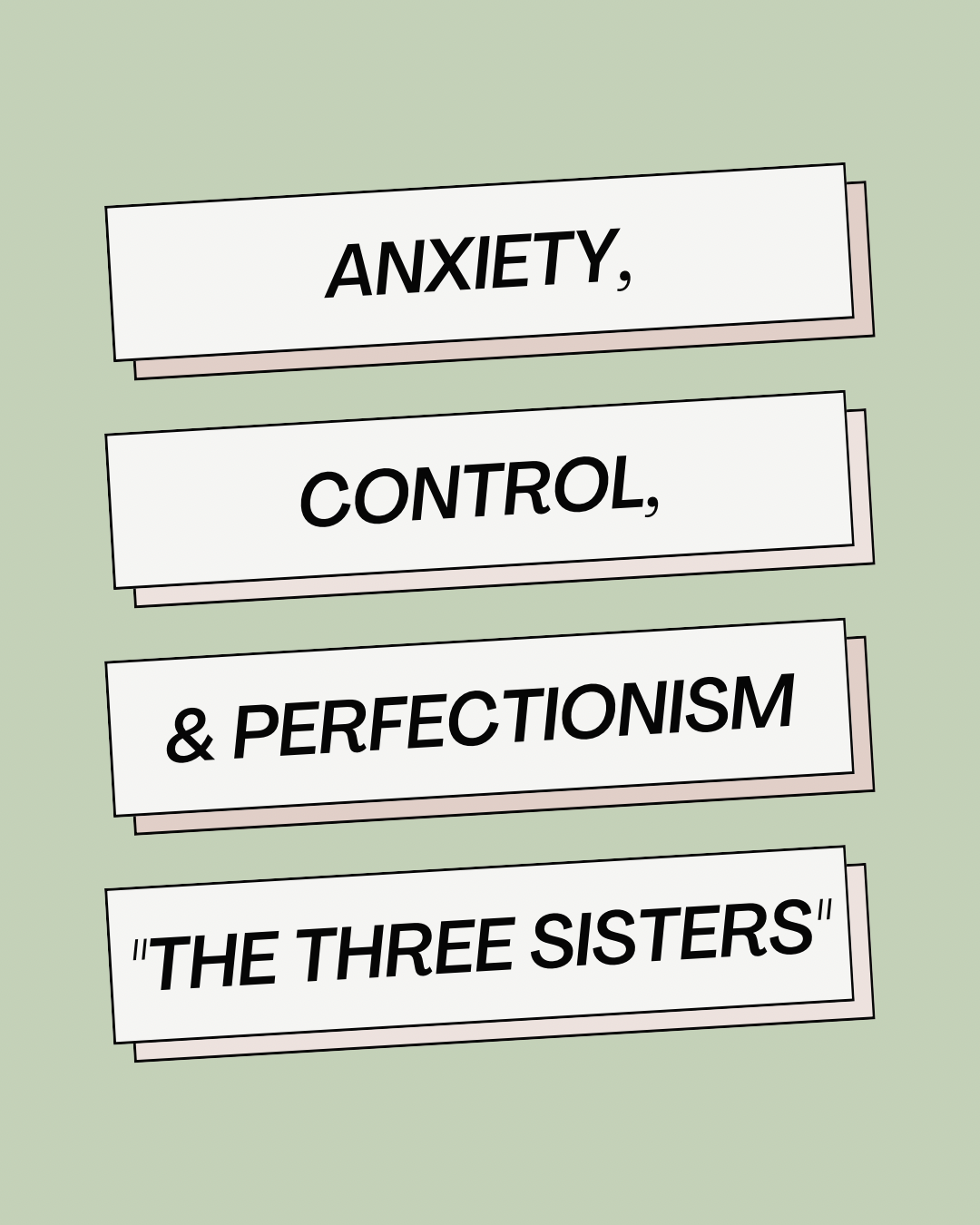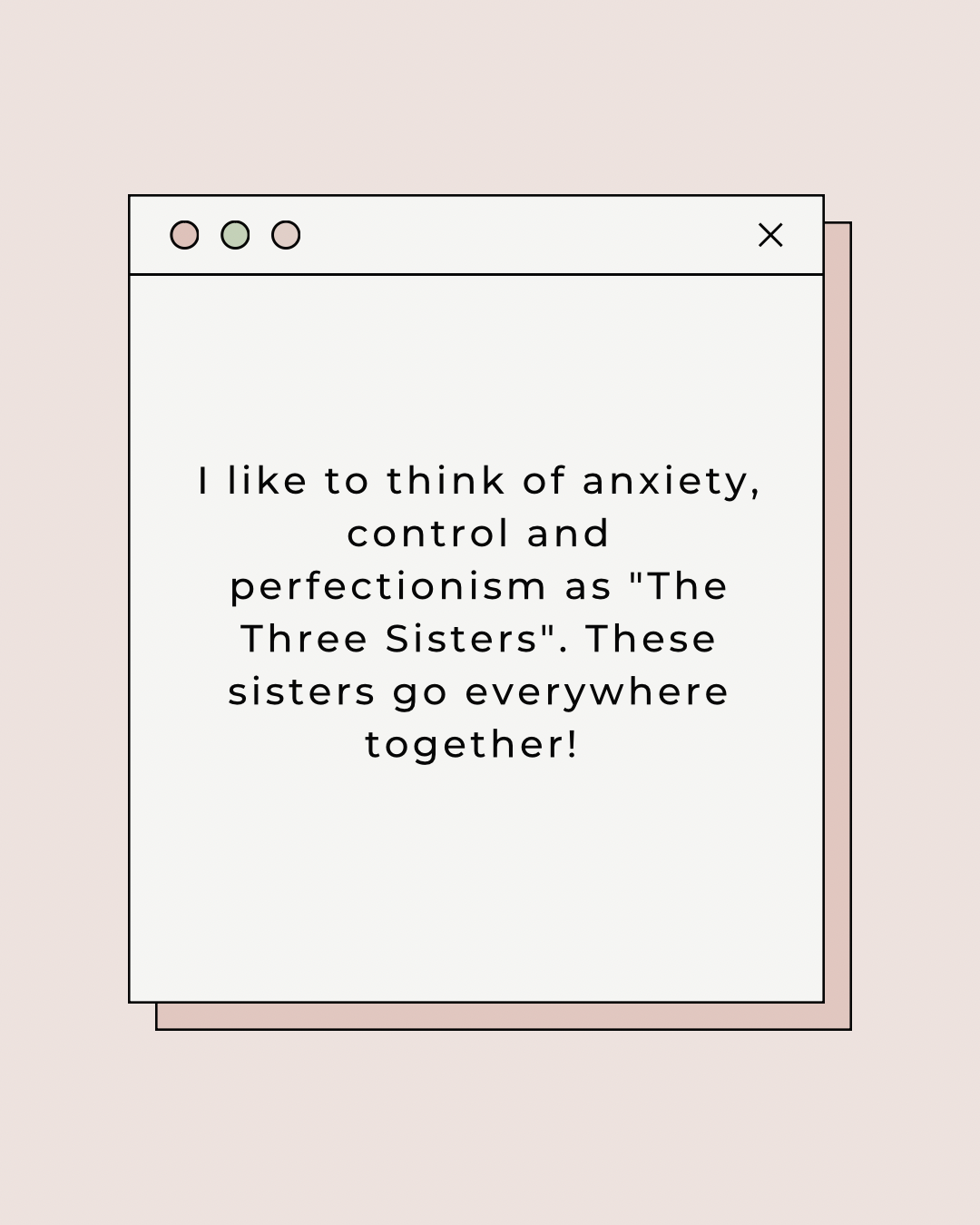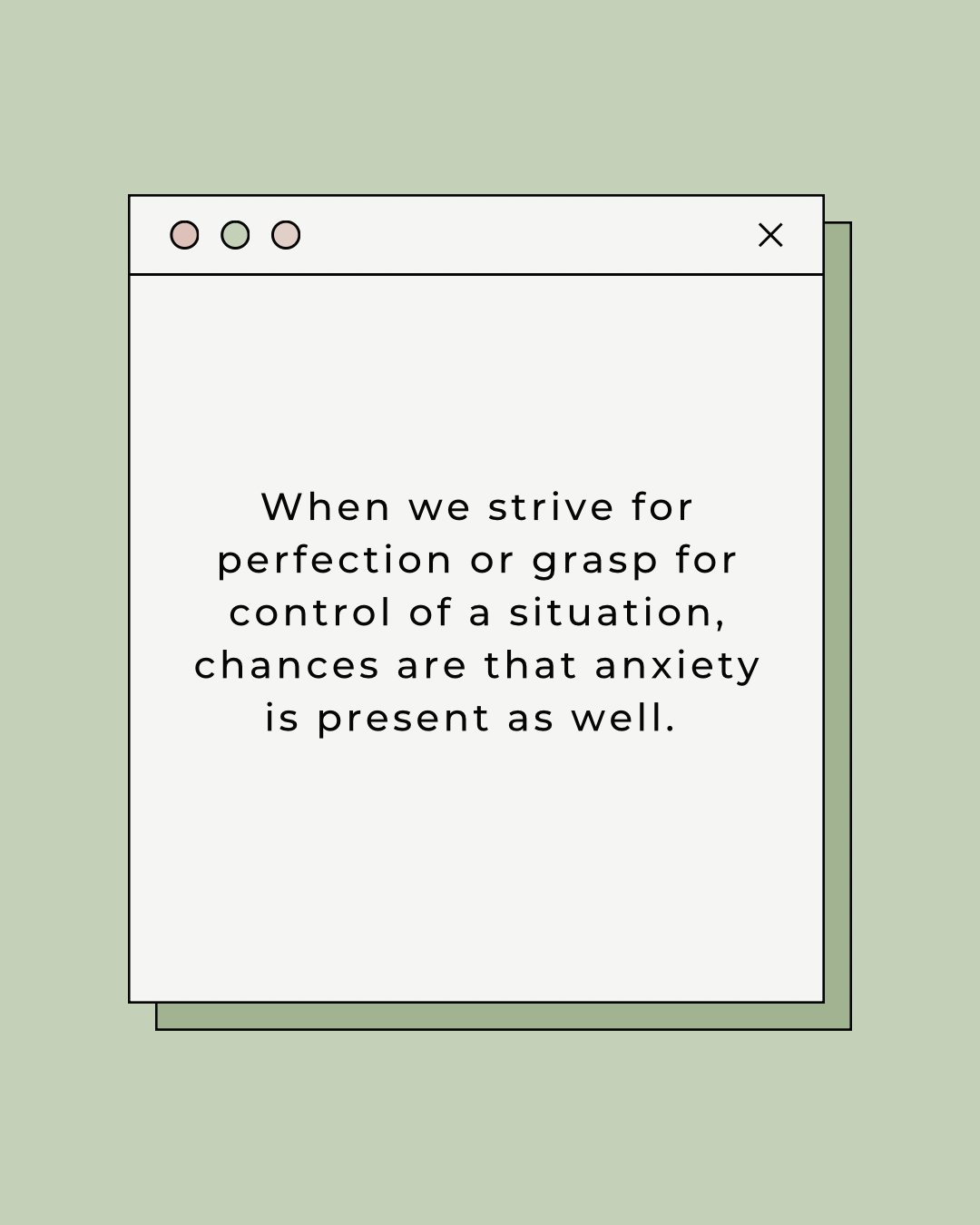Anxiety, Perfectionism & Control: “The Three Sisters”
Let’s talk about the relationship between anxiety, control, and perfectionism (or, as I like to refer to them, ‘The Three Sisters’). The Three Sisters are always together. Many of us have experienced the burdensome weight of these intertwined forces, which can hinder our happiness and overall well-being. If you’re striving for perfection or grasping for control of a situation, chances are that anxiety is present as well. So, how do each of these forces work?
Anxiety:
Anxiety, that unwelcome companion that follows us through life's twists and turns, manifests itself in various ways. It often stems from a fear of the unknown, a feeling of vulnerability, or a belief that we are not equipped to handle life's challenges. Anxiety can manifest as persistent worry, restlessness, physical symptoms, or even panic attacks. Anxiety is a normal human emotion, but when it begins to control our lives, it's time to take a step back and reassess.
Control:
In our quest for security and certainty, we often seek to control every aspect of our lives. We cling to the notion that if we can anticipate and manipulate our circumstances, we will be immune to discomfort and disappointment. However, this illusion of control only intensifies our anxiety, leaving us exhausted and overwhelmed. It's important to recognize that life is unpredictable, and we must learn to embrace the unknown. Ironically, when we let go of the things outside our control, often this is when we gain greater control and power over the choices we do have. Relinquishing control can be very freeing!
Perfectionism:
Perfectionism, that relentless taskmaster, pushes us to strive for flawlessness in every area of our lives. While it may seem like a noble pursuit, it often leaves us feeling inadequate, constantly chasing an unattainable standard. The fear of failure becomes suffocating, preventing us from taking risks and embracing our true selves. Perfectionism thrives on control and fuels our anxiety, creating a vicious cycle that keeps us trapped.
Getting Help:
Now that you understand the intricate web between anxiety, control, and perfectionism, it's time to break free from their suffocating grip. Remember, you are not alone in this journey. You don’t have to do it all by yourself! If you decide to seek therapy for anxiety control and perfectionism, here are some examples of what you can expect:
1. Uncover Underlying Beliefs: Therapy for anxiety can help you explore the root causes of your perfectionistic tendencies, anxiety, and the need for control. Through gentle inquiry and discussion, you can uncover deep-seated beliefs or past experiences that contribute to these patterns. Understanding the origins of these behaviors is essential for initiating change.
2. Challenge Cognitive Distortions: Therapy provides a safe space to identify and challenge negative thought patterns and cognitive distortions associated with perfectionism and anxiety. Anxiety therapy can help you recognize when your thoughts are irrational or overly critical and guide you towards more realistic and balanced thinking.
3. Address Fear of Failure: Anxiety therapy can help you confront and reframe your fear of failure, allowing you to see it as an opportunity for growth and learning. Through guided exploration, therapy can help you develop resilience and develop a healthier relationship with success and setbacks. By reframing failure as a valuable part of the human experience, therapy can alleviate the pressure to be perfect.
4. Build Self-Compassion: Therapy encourages the cultivation of self-compassion, allowing you to treat yourself with kindness and understanding. Therapy for anxiety can help you challenge self-critical thoughts and replace them with self-affirming beliefs. Developing a compassionate mindset fosters self-acceptance and reduces the need for excessive control and perfection.
5. Support and Validation: Perhaps one of the most significant benefits of therapy is the unconditional support and validation you receive. Anxiety therapy is a non-judgmental space where you can express your fears, struggles, and concerns openly. This support can help alleviate the isolation often felt by those struggling with anxiety, perfectionism, and the need for control.
It can be challenging to relinquish perfectionism in a culture that constantly tell us we aren’t enough. Truthfully, no one is perfect, and waiting until you achieve perfection can be extremely limiting and isolating. You’re being hard on yourself!
Remember that anxiety, control, and perfectionism are not insurmountable obstacles. With self-compassion, a willingness to let go of control, and a shift in mindset, life can change for the better. Embrace the beautiful imperfections of life, for it is through embracing our vulnerabilities that we truly grow. You are deserving of love, acceptance, and a life lived authentically. Take that first step towards self-discovery, and the rest will follow.


